第6章 Chapter 2(3)
With regard to the 'strict dissent'with which her parents have been taxed,Miss Browning writes to me:'My father was born and educated in the Church of England,and,for many years before his death,lived in her communion.He became a Dissenter in middle life,and my mother,born and brought up in the Kirk of Scotland,became one also;but they could not be called bigoted,since we always in the evening attended the preaching of the Rev.Henry Melvill(afterwards Canon of St.Paul's),whose sermons Robert much admired.'
Little need be said about the poet's mother.She was spoken of by Carlyle as 'the true type of a Scottish gentlewoman.'Mr.Kenyon declared that such as she had no need to go to heaven,because they made it wherever they were.But her character was all resumed in her son's words,spoken with the tremulous emotion which so often accompanied his allusion to those he had loved and lost:'She was a divine woman.'
She was Scotch on the maternal side,and her kindly,gentle,but distinctly evangelical Christianity must have been derived from that source.Her father,William Wiedemann,a ship-owner,was a Hamburg German settled in Dundee,and has been described by Mr.Browning as an accomplished draughtsman and musician.She herself had nothing of the artist about her,though we hear of her sometimes playing the piano;in all her goodness and sweetness she seems to have been somewhat matter-of-fact.But there is abundant indirect evidence of Mr.Browning's love of music having come to him through her,and we are certainly justified in holding the Scottish-German descent as accountable,in great measure at least,for the metaphysical quality so early apparent in the poet's mind,and of which we find no evidence in that of his father.His strong religious instincts must have been derived from both parents,though most anxiously fostered by his mother.
There is yet another point on which Mrs.Browning must have influenced the life and destinies of her son,that of physical health,or,at least,nervous constitution.She was a delicate woman,very anaemic during her later years,and a martyr to neuralgia,which was perhaps a symptom of this condition.The acute ailment reproduced itself in her daughter in spite of an otherwise vigorous constitution.
With the brother,the inheritance of suffering was not less surely present,if more difficult to trace.We have been accustomed to speaking of him as a brilliantly healthy man;he was healthy,even strong,in many essential respects.Until past the age of seventy he could take long walks without fatigue,and endure an amount of social and general physical strain which would have tried many younger men.
He carried on until the last a large,if not always serious,correspondence,and only within the latest months,perhaps weeks of his life,did his letters even suggest that physical brain-power was failing him.
He had,within the limits which his death has assigned to it,a considerable recuperative power.His consciousness of health was vivid,so long as he was well;and it was only towards the end that the faith in his probable length of days occasionally deserted him.